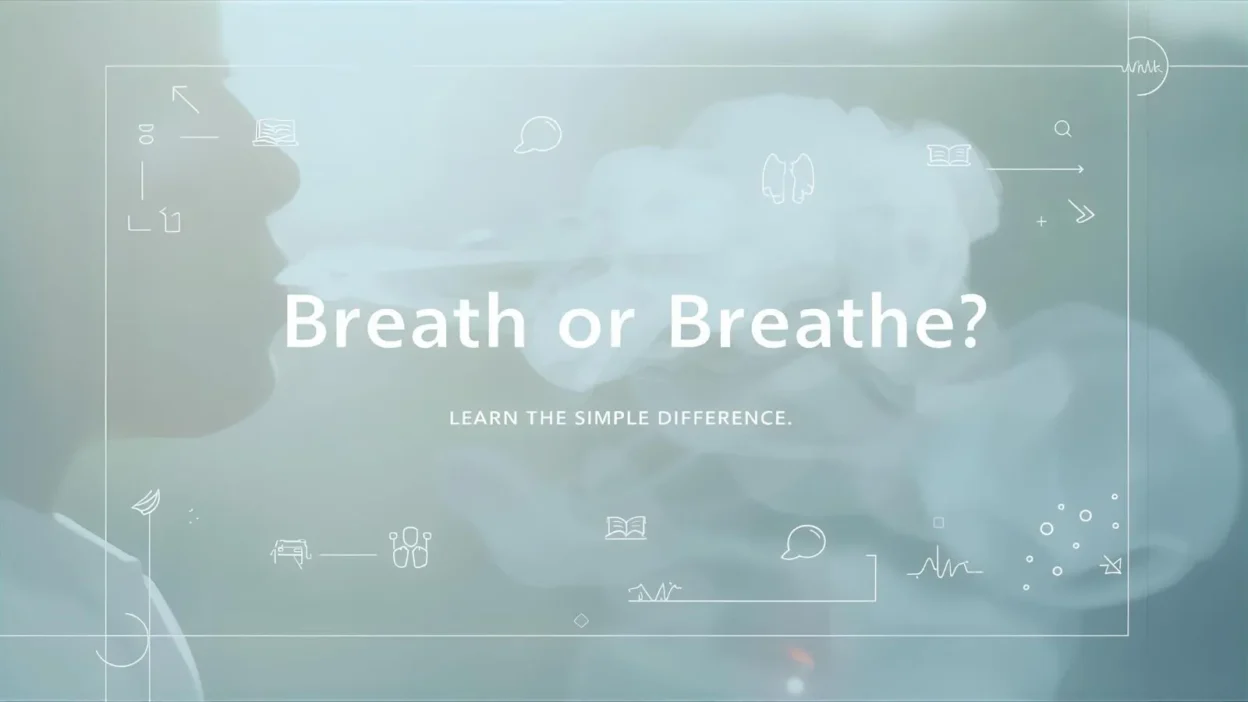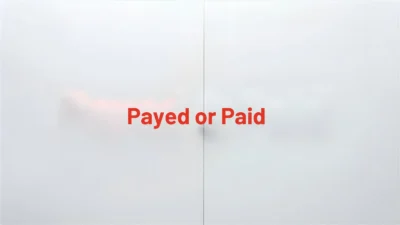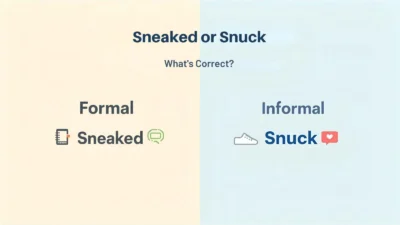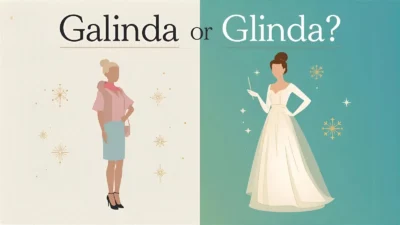Ever get stuck wondering whether it’s breath or breathe? 😅 You’re not alone—I’ve made that mistake too! If you’re trying to write clearly or sound more confident in English, this guide is for you.
These two words look alike but mean very different things. In this quick and clear guide, I’ll show you exactly when to use breath and when to use breathe—so you never mix them up again.
Let’s take a deep breath and start to breathe confidently through English! 🌬️
Breath or Breathe – Quick Answer 🪶
“Breath” is a noun — it means the air you take in or let out.
“Breathe” is a verb — it means the act of taking air in and out of your lungs.
✅ Examples:
- Take a deep breath before your speech.
- Don’t forget to breathe slowly to calm down.
Quick Tip:
If you can replace the word with “take air in,” use breathe. If you mean “the air itself,” use breath.
The Origin of Breath and Breathe 📜
Both words come from Old English.
- Breath comes from brǣth, meaning air, smell, or vapor.
- Breathe comes from brēathan, meaning to emit air or exhale.
Over time, English simplified the spelling but kept both forms to separate the noun (breath) from the verb (breathe). The extra “e” in breathe helps signal its longer sound and verb form.
British English vs American English Spelling 🇬🇧🇺🇸
Good news — both British and American English spell breath and breathe the same way! 🎉
However, pronunciation may differ slightly due to accent and stress.
| Word | Part of Speech | Pronunciation (UK) | Pronunciation (US) | Meaning |
|---|---|---|---|---|
| Breath | Noun | /brɛθ/ | /brɛθ/ | The air you take in or out |
| Breathe | Verb | /briːð/ | /brið/ | The act of inhaling or exhaling |
Even though the spellings are identical, the pronunciation difference in “th” (soft vs voiced) often causes mix-ups.
Which Spelling Should You Use? 🌍
No matter where you are — US, UK, Canada, or Australia — the spelling stays the same:
- Breath (noun)
- Breathe (verb)
👉 Use breath when talking about air.
👉 Use breathe when describing the action.
Example for clarity:
- “Take a breath” (noun)
- “Breathe deeply” (verb)
So, wherever you live, the key is understanding the part of speech — not your location.
Common Mistakes with Breath and Breathe ⚠️
Here are some errors people often make:
| Mistake | Wrong Sentence | Correct Sentence |
|---|---|---|
| Using “breath” as a verb | I can’t breath without you. | I can’t breathe without you. |
| Using “breathe” as a noun | Take a deep breathe. | Take a deep breath. |
| Forgetting the “e” | Remember to breath slowly. | Remember to breathe slowly. |
Tip: If the sentence needs action, it’s “breathe.” If it’s about the air, it’s “breath.”
Breath and Breathe in Everyday Examples 💬
You’ll see these words everywhere — from casual posts to medical advice. Here’s how they’re used:
In emails:
- “Take a deep breath and focus on the next task.”
- “Let’s breathe before we react.”
In news headlines:
- “Firefighters risked their last breath to save lives.”
- “Doctors advise people to breathe slowly to reduce stress.”
In social media:
- “Sometimes all you need is one deep breath.”
- “Don’t forget to breathe through the chaos.”
These examples show how easily you can remember the difference in real-world use.
Breath or Breathe – Google Trends & Usage Data 📊
According to Google Trends, the word “breathe” is searched more frequently than “breath.”
This happens because many users confuse the two while writing or texting.
| Country | Most Searched Term | Notes |
|---|---|---|
| United States | Breathe | Often used in wellness and meditation searches |
| United Kingdom | Breath | Seen in idioms like “hold your breath” |
| Canada | Breathe | Popular in motivational quotes |
| India | Breathe | Common in yoga and mindfulness content |
👉 Insight: “Breathe” dominates global searches due to its use in mindfulness, meditation, and health-related content.
FAQs:
1. What is the main difference between breath and breathe?
→ Breath is a noun (the air). Breathe is a verb (the action).
2. How do you pronounce breath and breathe?
→ Breath rhymes with “death.” Breathe rhymes with “leave.”
3. Can I say “take a breathe”?
→ No. It should be “take a breath.”
4. Is “breathe” the past tense of “breath”?
→ No. They’re different words. The past tense of breathe is breathed.
5. Why do both words look so similar?
→ They come from the same Old English root but evolved to show noun vs verb use.
6. How can I remember the difference easily?
→ Remember: the longer word (breathe) means a longer action — breathing in and out.
7. Which one is correct: “can’t breath” or “can’t breathe”?
→ Always “can’t breathe.”
Conclusion 🌅
The confusion between breath and breathe is completely normal — even fluent English speakers make it!
But once you remember that breath is a noun and breathe is a verb, everything becomes clear. Think of it this way: you take a breath, and you breathe deeply.
Whether you’re writing a message, studying English, or calming your mind, understanding the difference helps you express yourself with clarity and confidence.
So next time you pause mid-sentence, take a deep breath, and know exactly when to breathe the right word into your writing. 🌬️

Hi, I’m Jason Carter, the author behind GrammarNestly.com.
I’m a grammar expert with a passion for helping readers understand the English language in a simple and practical way.
I love breaking down confusing grammar rules and turning them into easy, everyday lessons that anyone can follow.



